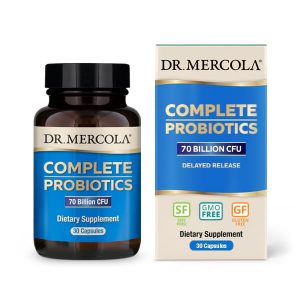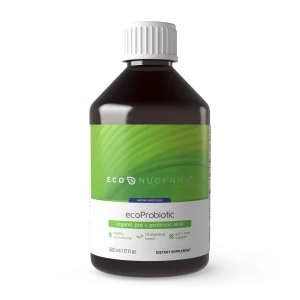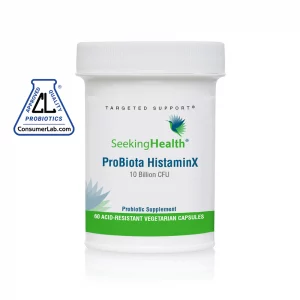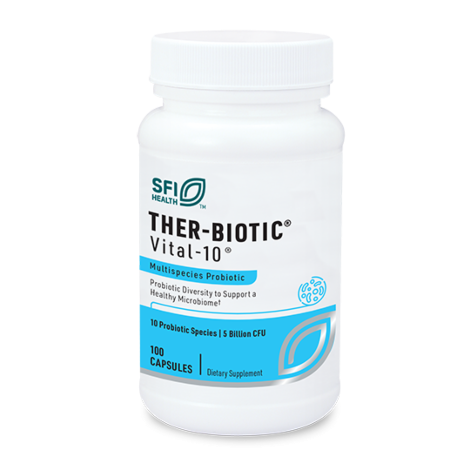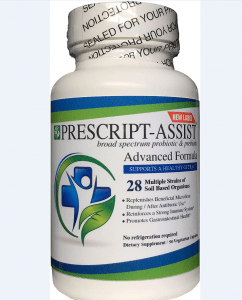In this blog we will cover the following:
Importance of Probiotics for the gut
What is the Gut Microbiome?
Microbiome impact on your health
Relationship between microbiome and probiotics
Type of probiotics
Sources of probiotics
Benefits of probiotics
How to incorporate probiotics into your diet
What are prebiotics and synbiotics? Where do they come from?
Probiotic myths
Probiotics are live microorganisms that provide health benefits when consumed in adequate amounts. Typically found in certain bacteria or yeast, probiotics support a healthy digestive system. They are available in supplements and fermented foods.
Importance of probiotics in maintaining gut health
Probiotics play a crucial role in maintaining gut health by balancing the microbiome, which is a complex community of microorganisms working symbiotically in the digestive tract. Dr. Elizabeth Green, a gastroenterologist, states, “Maintaining a balanced gut microbiome is essential for digestive health, nutrient absorption, and the immune system.” Probiotics contribute to this balance, helping to prevent and treat gastrointestinal issues and beyond.
The concept of probiotics dates back to the early 20th century, but the idea that consuming fermented foods can be beneficial for health is ancient. Historical records show that cultures around the world have included fermented foods in their diets for thousands of years. The term “probiotic,” meaning “for life,” was introduced in the mid-20th century. Since then, research into probiotics and their effects on health has expanded significantly.
What is the gut microbiome and why is it important?
The gut microbiome refers to the collection of microorganisms living in the intestinal tract. This includes bacteria, fungi, viruses, and other microbes. Dr. Zach Bush, a microbiome expert and physician, explains, “We are a suffering population when it comes to Gut Health. The gut microbiome is crucial for the development of the immune system, protection against pathogens and even effects and mood.” An imbalance in these microorganisms can lead to numerous health problems.
How the gut microbiome affects overall health
Research has demonstrated that the gut microbiome influences not only gastrointestinal health but also the immune system, mental health, and susceptibility to chronic diseases. An imbalance in the gut microbiome, known as dysbiosis, has been linked to conditions such as obesity, type 2 diabetes, and inflammatory bowel disease.
The relationship between the gut micriobiome and probiotics
The gut microbiome, a complex community of microorganisms in the digestive tract, plays a crucial role in human health, influencing digestion, immunity, and even mood. Probiotics, beneficial live bacteria and yeasts, support the gut microbiome by enhancing its diversity and balance. They help replenish good bacteria, often depleted by factors like antibiotics, poor diet, or illness. Regular intake of probiotics through supplements or fermented foods, such as yogurt and kefir, can improve gut health, boost immune function, and prevent gastrointestinal issues. The synergy between probiotics and the gut microbiome underscores their importance in maintaining overall health and well-being.
Types of Probiotics
The most common types of probiotics belong to the Lactobacillus and Bifidobacterium genera. Each type has different strains, each with unique benefits. For instance, Lactobacillus acidophilus is known for its ability to improve lactose digestion and enhance immune function.
Sources of probiotics: food vs. supplements
Probiotics can be obtained through fermented foods such as yogurt, kefir, sauerkraut, and kimchi, or through dietary supplements. While foods provide a natural source of probiotics, supplements can offer specific strains in concentrated doses. It’s important to note that the quality and quantity of probiotics can vary significantly between sources.
Probiotic strains and their specific benefits
Each probiotic strain has specific health benefits. For example, Bifidobacterium lactis is often used to improve bowel regularity and combat lactose intolerance, while Lactobacillus reuteri has been shown to reduce the duration of infant diarrhoea. Selecting the appropriate strain based on individual health needs is crucial for achieving the best results.
Health Benefits of Probiotics
Digestive health
Probiotics are widely recognised for their benefits to digestive health. They can help manage conditions such as irritable bowel syndrome (IBS), inflammatory bowel disease (IBD), and antibiotic-associated diarrhoea. According to a review published in the Journal of Gastroenterology, probiotics can significantly alleviate symptoms of IBS and improve quality of life for those affected.
Immune system support
Beyond the gut, probiotics play a vital role in supporting the immune system. By maintaining a healthy gut microbiome, probiotics can enhance the body’s defence mechanisms against infections and diseases. Clinical studies have shown that certain probiotic strains can reduce the incidence and duration of respiratory infections.
Potential benefits beyond the gut
The benefits of probiotics extend beyond gastrointestinal health. Emerging research suggests that probiotics may have a positive impact on mental health, skin conditions, and weight management. For instance, a study in the journal Gut Microbes found that certain probiotics can alleviate symptoms of depression and anxiety through the gut-brain axis.
Review of scientific evidence supporting probiotic benefits
The efficacy of probiotics is supported by a growing body of scientific evidence. However, it’s important to note that not all probiotics are created equal, and the benefits can vary depending on the strain and dosage. As such, consultation with a healthcare provider is recommended to determine the most appropriate probiotic based on individual health needs and conditions.
Incorporating Probiotics into Your Diet
Foods rich in probiotics
Incorporating probiotics into the diet can be achieved through consumption of fermented foods. Yogurt, kefir, sauerkraut, tempeh, and miso are examples of foods naturally rich in live cultures. Dr. Michael Brown, a nutritionist, suggests, “Regular consumption of fermented foods can contribute to the diversity and health of the gut microbiome, thereby enhancing digestive health and immune function.”
Tips for choosing probiotic supplements
When selecting probiotic supplements, it is important to look at the strain, the dose, and the expiry date. Supplements should contain live and active cultures, and a variety of strains may offer broader health benefits. “It’s essential to choose supplements from reputable sources and to check for clinical evidence supporting the strains used,” advises Dr. Brown.
Recommended daily intake and considerations
While there is no one-size-fits-all recommendation for the intake of probiotics, a general guideline is to look for products containing 1 billion to 10 billion colony-forming units (CFUs) per serving. However, individual needs may vary, and some conditions may require higher doses. Consultation with a healthcare provider is advisable to determine an appropriate intake based on personal health needs.
Potential side effects and precautions
Probiotics are generally considered safe for most people, but they can cause side effects such as gas and bloating, especially during the initial period of consumption. Individuals with compromised immune systems or those with serious underlying health conditions should consult a healthcare professional before starting probiotic supplements.
Probiotics, Prebiotics, and Synbiotics
Prebiotics are non-digestible food components that selectively stimulate the growth or activity of beneficial microorganisms in the gut. Synbiotics refer to products that combine probiotics and prebiotics in a form that beneficially affects the host. “Prebiotics and synbiotics play crucial roles in enhancing the efficacy and survival of probiotics,” explains Dr. Laura Hughes, a microbiologist.
How prebiotics and synbiotics complement probiotics
Prebiotics serve as food for probiotics, promoting their growth and activity. Synbiotics, combining both elements, ensure that probiotics reach the gut in viable form and are nourished properly to exert their health benefits effectively. This synergistic relationship enhances gut health and overall well-being.
Sources and recommendations for prebiotics and synbiotics
Prebiotic sources include foods rich in dietary fibres such as bananas, onions, garlic, and leeks. Synbiotic products are available as supplements and should be chosen based on the specific strains of probiotics and types of prebiotics they contain. Dr. Hughes advises, “Look for products with clinically supported strains and prebiotic types for maximum benefit.”
Common Myths and Misconceptions About Probiotics
One common myth is that all probiotics are the same. In reality, different strains provide different benefits. Another misconception is that healthy individuals do not need probiotics. However, probiotics can benefit everyone by maintaining gut health and supporting the immune system.
Understanding the limitations and misconceptions
It is crucial to understand that probiotics are not a cure-all and should not replace conventional medical treatment. While they can support health, they are not universally effective for all conditions. “Probiotics offer numerous health benefits, but they are not a substitute for a healthy lifestyle and balanced diet,” notes Dr. Brown.
The importance of scientific evidence and consultation with healthcare providers
Relying on scientific evidence and consulting with healthcare providers before starting any probiotic regimen is essential. This ensures that individuals choose the right strains and dosages for their specific health needs and avoid adverse effects.
Popular Probiotics You Can Buy on Nature’s Fix:
Complete Probiotics (70 billion CFU, 10 Strains) – 30 Caps – Dr Mercola
SKU: 1019
£44.96
ecoProbiotic 500ml – Econugenics
SKU: 91425
£48.38
ProBiota HistaminX – 60 Vegetarian Capsules – Seeking Health
SKU: 8614
£45.31
Vital-10, 100 Capsules – Klaire Labs/SFI Health
SKU: 7661
£25.27
Probiotic Plus 60 Capsules – Nutri Advanced
SKU: 9706
£16.96
Prescript Assist SBO (soil based) Probiotic – 90 caps – No Pea Protein – Safer Medical
SKU: 29241
£69.99
Terraflora Daily Care – Broad Spectrum Synbiotic (soil based / SBO) – 60 Capsules – Enviromedica
SKU: 9894
£52.99
For these and more visit www.naturesfix.co.uk
Conclusion
The exploration of probiotics, prebiotics, and synbiotics uncovers a complex world within our gut that plays a pivotal role in our overall health. The evidence supporting the benefits of probiotics in promoting digestive health, enhancing immune function, and contributing to mental and physical well-being is growing. However, understanding that probiotics are not a universal remedy is crucial; they are a supplement to, not a substitute for, a balanced diet and healthy lifestyle.
It’s essential for individuals to approach probiotics with an informed perspective, recognizing the differences among strains and the specific benefits they may offer. Consulting healthcare professionals before starting any new supplement regimen is advisable to ensure the choice aligns with individual health needs and conditions.
The future of probiotics and gut health research is promising, with emerging studies exploring the potential for personalised probiotic treatments based on individual microbiome compositions. This could lead to more effective and targeted approaches to health maintenance and disease prevention.
While probiotics represent a significant step forward in our understanding and management of gut health, continuous research and education are necessary to fully harness their potential. By debunking myths, understanding the science behind probiotics, and acknowledging their limitations, we can make informed decisions about our health and well-being. By understanding probiotics and their benefits, you can take proactive steps towards a healthier gut and overall well-being.






